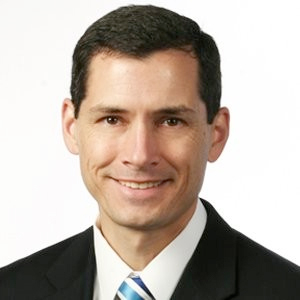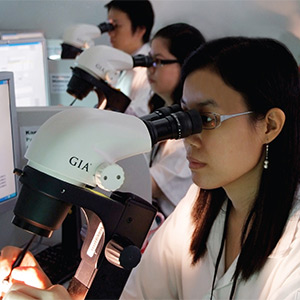
WD Lab Grown has named tech executive Mike Grunza (pictured) its new CEO, replacing Sue Rechner, who has opted to retire, the company said.
Since August, Grunza has been interim president of WD, which in 2019 was purchased by Huron Capital. Prior to that, he was a company board member for two years. He was previously CEO of Form Technologies, an engineering and materials company.
“This company has so much potential,” he tells JCK. “We just need to unleash it.”
Rechner, who had a branding background, served as WD’s CEO for three years, starting in 2019. By contrast, Grunza has an engineering degree, which some took as a signal the company plans to move in a more tech-oriented direction.
But Grunza says that while the company will get more involved in the tech sector, it also plans to stay in the gem market and promote its brand, Latitude.
“I wouldn’t be surprised if you see us a lot more, everywhere you look,” he says. “We definitely have to go out there and let people know what we are doing and cement our leadership position.”
He adds that the company plans to focus more on high-end luxury and “purpose-driven” brands.
“The high-end jewelers, the high-end watchmakers, those are places where we want to play, especially those that have a purpose statement behind them,” he says.
Of course, those high-end names have been generally reluctant to embrace lab-grown diamonds. Grunza believes that’s because the field’s too crowded.
“There have been so many people who have joined this industry recently, it really becomes tough to sort out who’s going to provide a really quality product that matches the quality brand of the jeweler or watchmaker. We’re going to position ourselves through technology to be that high-quality diamond [maker]. So these high-end players can sort out the others and say, ‘These guys stand above all that.’
“Not being everything to everyone is going to allow us to be really good at things we want to do,” he adds. “We won’t dilute our brand by sending out stuff that doesn’t meet the highest standards…. We’re not going to be the lowest-cost person, nor do we want to be. We want to be the highest-quality person. We want to be, as diamonds were meant to be, something that inspires awe and fascination.”
Grunza says the company is constantly evolving its technology and has just filed for new patents that will “allow us to do something different than others have been able to accomplish.”
Two years ago, WD sued some of its competitors for allegedly violating its patents on diamond growth and post-growth treatment. Those patents have since expired.
“I think we’re through the majority of that phase, about trying to protect older patents that are out there,” Grunza says. “If you want to stay ahead of the competition, it isn’t necessarily about defending older patents that are on the last two years of their duration, it’s about figuring out, every two years, how we perfect this process even better.”
He admits that lab-grown diamond prices have been falling but believes the culprit is industry custom.
“Right now, everyone is pricing the product based on some percent off Rap. We have to get to the point where we produce a good enough quality product that we no longer have to rely on percent off Rap. Unfortunately, with all the different entrants that have come in, they produced a lot of low-end stuff that’s driven the market down pretty far. Now, all it takes for someone to really stand out.”
He says the company has made progress in developing diamonds for technical materials.
“There will probably be some announcements during the year at Semicon [a microelectronics conference] and some other places, that we’ll want to talk about,” he says. “We think we have a unique way of doing some of those big Holy Grails that people are talking about, whether it’s a two-inch substrate, or getting all the right properties of some of these crystals. We think we have a clever way, and some good partners that we’re working with, to advance this along fairly quickly.”
As far as talk that WD could use more industry veterans, Grunza admits he’s heard the same thing.
“I don’t think you could ever have enough people with industry experience, and I think you need to sprinkle in, too, people that don’t, so that we challenge some of the status quo.”
Photo courtesy of WD Lab Grown
- Subscribe to the JCK News Daily
- Subscribe to the JCK Special Report
- Follow JCK on Instagram: @jckmagazine
- Follow JCK on X: @jckmagazine
- Follow JCK on Facebook: @jckmagazine







